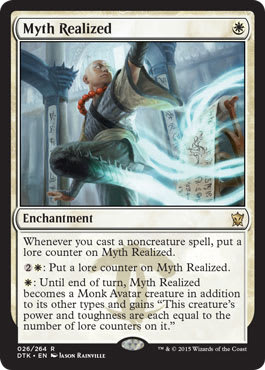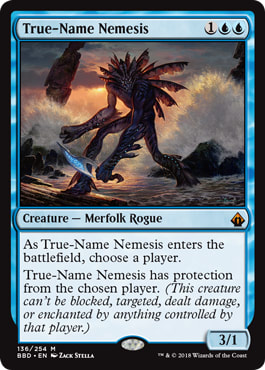Last week, Abe Sargent made a case for a Magic writers Hall of Fame. Following the development of the Judge Hall of Fame as well as the continued success of the Pro Tour Hall of Fame and the general growth of Magic, Sargent feels now is an appropriate time to start recognizing those who shape how we experience the game outside actual play.
Like nearly everything in our community, this stance led to reactions. Perhaps the most popular one (at least from what I saw) was, “Why?” Having a Hall of Fame for players makes sense, as it recognizes achievements in play (and other areas as well). The Judge Hall of Fame makes some sense since judges are vital members of the competitive realm. Writers (and content creators) are also part of the lifeblood, but does their contribution warrant eternal recognition? More than that, do we want to subject ourselves to the inexorable tide of proliferation of recognition?
If everyone is great, is anyone truly great?
I am torn on the concept of a writer’s wing. On one hand, I absolutely believe it is important to recognize those who have given to Magic during their lifetimes in ways outside of Pro Tour Top 8s. Conversely, great writing—that worthy of a hall of fame—is in some ways completely subjective.
What constitutes a hall-of-fame writing career? Does longevity count? In Major League Baseball (my go-to for sports), there is a type of Hall-of-Famer called a “collector.” This player collected many milestone statistics over the course of a long career, and while he never stood out as elite, the numbers are there. Should someone who has written an article every week for ten years make it in even if he or she is all above average? I don’t know.
What about quality? In a writer’s tenure, he or she may publish hundreds upon hundreds of articles and have very few of them be worthy of greatness. Mark Rosewater, one of the most prolific authors out there, reviews his columns every time he hits the next hundred. He’s done six of these so far, with another due this year. MaRo is very reflective and looks at his articles with a discerning eye, and while he may have produced more clearly excellent pieces than others, has he written enough? There’s no Top 8 tracker for the written word.
I do not mean to disparage Abe—just to provide another point of view. The appreciation of anything is incredibly subjective, and writing about a many-faceted game adds another level of issue. My guess is the vast majority of people who play Magic may not ever care about Mike Flores’s “Who’s the Beatdown?” but it remains a seminal piece of theoretical literature. Conversely, there exists a contingent of grinders who will never give Anthony Alongi’s Animal Scale the most cursory of glances, but it too remains a vital piece of our culture.
Great writing depends on the audience. Great playing relies on the individual.
So what, then, is the ultimate achievement of the writer? I guess a lot of that depends on the why. Anyone who creates content, as we have learned, must have something to say. To that end, the creator desires to communicate his or her thoughts using the kludge of language (and in some case images) to the masses. The end goal of any publication, it can be said, is to be consumed, digested, and understood.
For me, great writing is not only widely read, but broadly understood, and the intention of the author rings clear. That is a guiding principle of my writing and how I measure my success.
So again we return to the why. Why are we focused on greatness, why is content created, and why do we care?
Education
As I mentioned above, creating content is about the communication of ideas. In a very basic way, quite a bit of writing is teaching—about a format, about a deck, about a style of thinking. This is why clarity of language and vision reigns supreme. The ability to be as direct as possible while still working through the kludge of words is a challenge, but when that challenge is overcome, the result is wonderful.
When the goal of a piece is to impart knowledge or wisdom, the measure of greatness should be clarity. I keep returning to “Who’s the Beatdown?” as an example of excellent writing, and it is in part due to the use of direct language. Flores is attempting to teach a fundamental of Magic gameplay in understanding tactical positioning. The entire article, and its wisdom, can be distilled down to that eternal line: “Misassignment of Role = Game Loss.” From these six words (and yes, I am counting the symbol as a word here), we can infer so much from the article and have a better understanding of what the author is trying to communicate.
Compare this to Flores’s “Dictating the Field of Battle.” Again, it is another article about tactical positioning (and another article I enjoy immensely), but it is dense. Not only that, but it makes numerous pop-culture references that are varying degrees of “popular.” Whereas “Who’s the Beatdown?” can be distilled to the barest of sentences, “Dictating” is something that requires far more reader investment. If the driving force behind a piece is to teach, clarity and brevity are your friends.
Having a long-lasting impact does not hurt either.
Recounting
The most common example of a recounting is the tournament report. These articles are written to become part of Magic’s history and tradition of myth. It is possible that these reports are the heroic tales of our culture, chronicling the mighty warrior on his or her quest to greatness.
Here, we see a split in what could make such work great. If one trends toward history, an accurate retelling of events is paramount. A precise chronicle is less important because, in the end, it is the records that matter, and those are already recorded. What makes a tournament report special is when we are able to gain insight into the mind of the writer. Here, the faithful retelling matters less than the story itself. The result is already known, perhaps foreshadowed in the title of the piece. Whereas an article can transcend, a mere recounting of events is where we are able to see growth and change—it is when we are able to feel the same accomplishment as the achiever.
I have often cited Paul Rietzl’s “A Champion Returns” as a great piece of writing. It not only provides the broad strokes of the event, but it also shows the journey of the Hall of Famer. Bruce Richard also lays claim to some fantastic pieces in this vein in his articles on the prereleases he helps to run out of his local library. What makes these works great is not just the writing (which is solid) or the wins and losses (which do not matter). No, what makes Richard’s works worthy of greatness is that they echo with the reality that Magic is a culture that goes well beyond tournaments. At the articles’ core, Richard communicates the fact that Magic is a game and hits the notes of pure enjoyment.
Flavor
As the worlds of Magic expand, so does the lore. When new planes are regularly visited, there are new cultures and histories to learn. There are stories that explore these realities and try to paint the pictures that influence the events taking place in the corresponding sets. As subjective as enjoying strategic content is, appreciating fiction is even more reliant on the consumer. The best measure, for my money, on the impact of flavor and fiction is how loudly it resonates throughout the community. The best example I can think of for something fantastic in this realm is James Wyatt’s “The Truth of Names.” Wyatt’s piece told an important story of inclusion and acceptance that happened to come at a perfect moment in Magic’s culture. Everything lined up to make those words reach another level.
Those who create content should aspire to greatness. It is hard to label writing as universally worthy of praise. All the art and craft with language is for naught if the reader simply does not enjoy a piece.
To create greatness, write for your audience, and make sure you resonate with them. That is the best way to do something above and beyond.



























